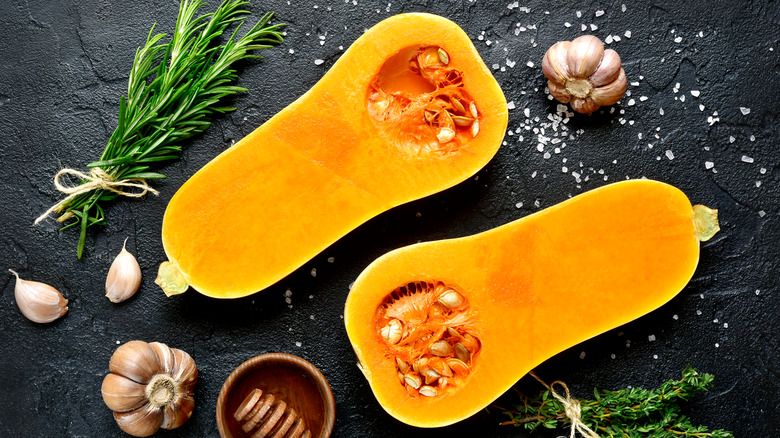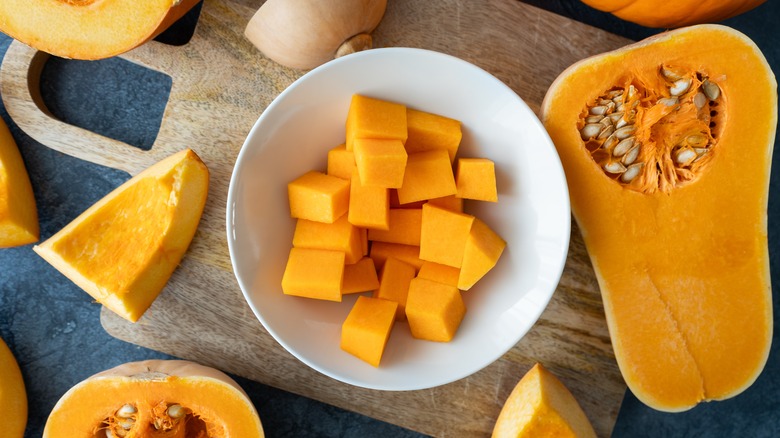How To Store Butternut Squash For Ultimate Freshness
Butternut squash isn't just a delicious and festive addition to holiday spreads, it's also a versatile addition to both sweet and savory side dishes that you can enjoy year-round (like this savory mashed butternut squash recipe). When stored correctly, an uncut butternut squash will typically remain fresh for anywhere from two to six months. So, how do you ensure that you're properly preserving your squash?
First, find a storage space with the optimal conditions, i.e., somewhere dark, dry, and temperate (between 50 and 55 degrees Fahrenheit). You should also protect your squash from ethylene gas from other fruit, as this may expedite spoilage. To do so, keep your squash away from humid areas and fruits that rapidly ripen.
Next, inspect your squash for dark, soft spots or discolorations before storing it. The more blemishes there are, the less time you have before your squash will rot. Conversely, a squash that appears green or lackluster might not be ripe yet and may benefit from some more time in storage. Even if you follow these steps, check on your squash weekly to see if it's still fresh to use.
Preserving your leftover butternut squash
Depending on what your recipe calls for, you may find yourself with leftover butternut squash. With the right storage options, these leftovers can be salvaged (whether or not they're cooked) and then repurposed into another dish, like this simple roast squash recipe.
Cubed, uncooked squash will remain fresh for a minimum of three days in the refrigerator and up to one year in the freezer. If you intend to use your remaining squash within three to five days, place the peeled cubes in an airtight storage container and refrigerate it. A glass or clear plastic container will ensure that your squash remains its freshest. If you plan to save your uncooked squash for longer, freezing may be a better option. To do so, freeze your cubes on a tray, and then move them to a freezer-safe container. When stored this way, your cubes will last anywhere from several months to a year — just don't forget about them.
If you have extra butternut squash that's been cooked, you can puree the leftovers after letting them cool. Then, just pour the puree into ice cube trays and pop them in the freezer. They can remain there for up to six months. Last but not least, before you dispose of the peels and seeds, here are some ways to reuse them.

